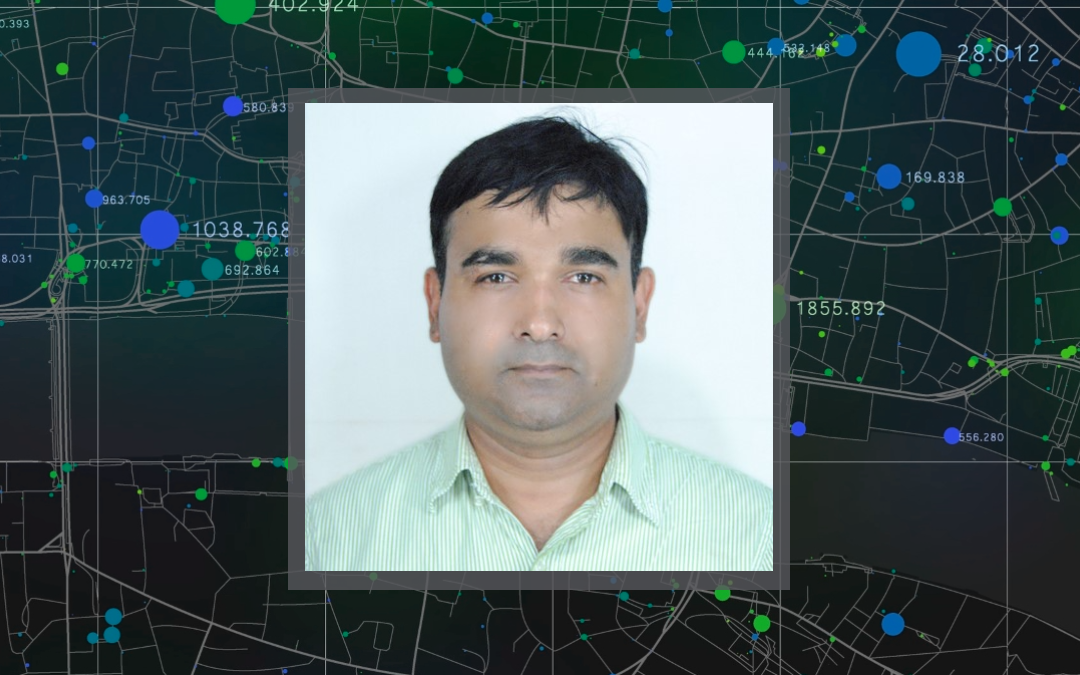Ubydul Haque, a geospatial epidemiologist who designs data- and technology-driven solutions for confronting global public health problems, will join Rutgers Global Health Institute.
Haque, who will become an assistant professor of global health at the institute on January 3, will have a joint appointment as an assistant professor of epidemiology in the Department of Biostatistics and Epidemiology at Rutgers School of Public Health.
Haque investigates factors related to physical space and time that can affect human health. His research has focused on infectious diseases, climate change, conflict and war, and natural disasters. Using data from his original research and existing large datasets that are available via public and private sector sources, Haque creates mathematical algorithms and forecasting models for infectious disease outbreaks and climate-related hazards that can be applied in public health. He also uses socioeconomic data, such as information about income, education, and employment, to incorporate factors that influence health.
“Unprecedented advances in technology have led to a proliferation of rich data that can be harnessed through the use of quantitative tools and then leveraged to improve public health management,” Haque said. “I’m focused on using such ‘big data’ for the public good, to better understand global health dynamics and, ultimately, to develop highly targeted ways for communities to address their specific health-related needs.”
Through this research, Haque supports the development of targeted interventions that can be applied in resource-efficient ways in vulnerable communities throughout the world. He is conducting studies in Brazil, Colombia, Laos, Malaysia, Mexico, Thailand, Turkey, and Ukraine.
Haque’s expertise includes using artificial intelligence to evaluate applications of machine-learning models in public health, a focus that continues to grow in importance as technology is increasingly relied upon for health-related decision-making. In Mexico, he has been researching the integration of environmental and social factors for the prevention of dengue, a mosquito-transmitted disease that is a growing risk for about half of the world’s population. This research is an expansion of his work mapping and analyzing 250,000 laboratory-confirmed cases of chikungunya, dengue, and Zika virus infections, an effort that resulted in the identification of location-specific risk factors, including climatic parameters, and the creation of one of the world’s largest databases of its kind.
In Malaysia, Haque is developing an agile dengue outbreak response system that could perform more effectively than human-based notification systems. It incorporates drone-based surveillance to detect mosquito breeding sites and a mobile app-based rapid alert system. Aspects of this research include implementation studies in Malaysia, Mexico, and Turkey.
Other public health topics that Haque investigates through a geospatial epidemiology lens include urban landslides and humanitarian crises. His recent paper, “The human toll and humanitarian crisis of the Russia-Ukraine war: the first 162 days,” published in BMJ Global Health, describes how Russia’s invasion of Ukraine has impacted the country’s health. The study tracked direct deaths and injuries in Ukraine; the impact of damage to Ukraine’s health care infrastructure; and the war’s impact on public health, including the destruction of homes, buildings, roads, power supplies, communication systems, and utility services.
Haque comes to Rutgers from the University of North Texas Health Science Center at Fort Worth, where he was an assistant professor of biostatistics and epidemiology in the School of Public Health. He earned a doctoral degree in climate change and health from Nagasaki University in Japan and was a postdoctoral fellow at Johns Hopkins University. He also received a master’s degree in geoinformatics from the Royal Institute of Technology in Sweden and a bachelor’s degree in urban and rural planning from Khulna University in Bangladesh.
Rutgers Global Health Institute is actively recruiting for multiple open-rank faculty positions to accelerate our role in addressing urgent issues in global health. Searches are underway for faculty positions in Cancer Care and Prevention in Sub-Saharan Africa; Global Health; and Health Equity, Social Justice, and Population Health. Learn more at globalhealth.rutgers.edu/hiring.

